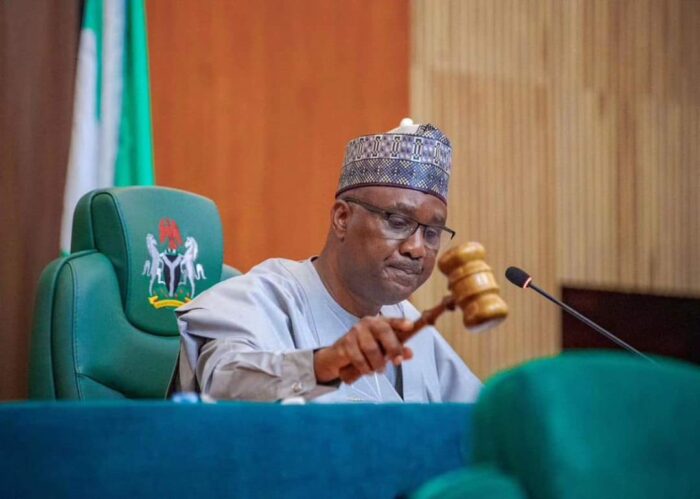A bill for an Act to amend the Electoral Act (2002) to make it mandatory for Nigerians of maturity age to vote in all national and state elections has scaled second reading in the House of Representatives.
The bill, which was sponsored by the Speaker of the House, Abbas Tajudeen and Daniel Ago, seeks to curb voter apathy during elections.
Leading the debate, Mr Ago said that participation was essential for healthy democracy.
He said that democracy thrives when citizens were actively engaged in the process of selecting their leaders and shaping the direction of governance.
The lawmaker said that Nigeria had consistently recorded alarming low voter turnout in elections.
According to him, in the 2023 general elections, less than 30 percent of the registered voters participated.
“This trend undermines legitimacy of elections and weaken democratic institutions.
“Voting is not only a right but a civic responsibility and in many democracy across the world, it is treated as such.
“This bill proposes to introduce mandatory voting for Nigerians of voting age in general elections both at the national and state levels.
“It seeks to amend the relative provisions of the Electoral Act of 2022 to reflect the obligations while also allowing for limitation and justified exemptions where necessary,” he said.
In his contribution, the Deputy Speaker, Benjamin Kalu said: “One of the roles of a parliament is to check where holes are and find solutions to block such holes.”
According to him, it is obvious that election after election recorded very low turnout of voters; a country as big as Nigeria, “when you hear the patriots song of votes coming out of Nigeria, it does not encourage the advancement of our democracy.
“The bill that is before us is not saying it is mandatory for a Nigerian to vote, it is saying that you must be counted in every election, whether it be local government, state or federal.
“In other climes that we have travelled to or lived, personally in Australia, it is actually an offence for you not to vote during elections.
“And the tax office will visit you and find out why you did not vote. And there are some incentives as a citizen, that will be denied because you refuse to fulfill your civic responsibility,” he said.
On his part, Awaji-Inombek Dagomie Abiante (PDP-Rivers) questioned the mode of implementation of the proposed law.
He advised that attention should focus on making election process free and fair, saying that citizens would ordinary go out to vote if they trust the process.
In his ruling, the Speaker referred the bill to the relevant committees for further legislative action.
NAN






